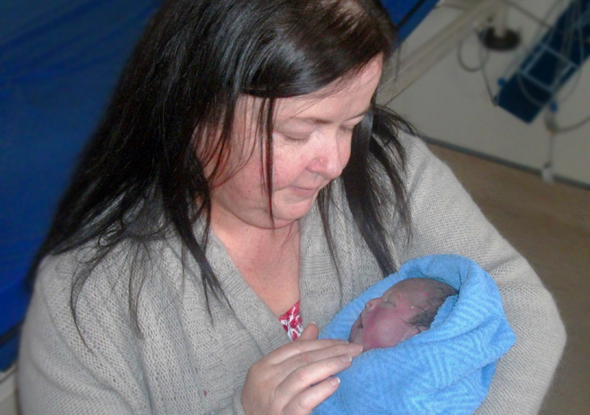As controversy over the Zika virus rages, a recent study has found that abortion in cases of diagnosed fetal anomalies poses greater risks to the mental health of mothers than continuing the pregnancy and allowing nature to take its course.
“There appears to be a psychological benefit to women to continue the pregnancy following a lethal fetal diagnosis,” the researchers wrote in the paper, which was published in Prenatal Diagnosis.
The study, from researchers at Duke University, examined a “diagnostically homogeneous” group of 158 women and 109 men who lost children to anencephaly, a condition in which parts of the brain and skill fail to develop. Most children with anencephaly die soon after birth, although some have lived longer.
The report found that women who underwent abortion suffered significantly more despair, avoidance and depression compared to women who continued the pregnancy..
The researchers recommended that “the risks and benefits, including psychological effects, of termination and continuation of pregnancy should be discussed in detail with an effort to be as non-directive as possible.”
Click here to sign up for pro-life news alerts from LifeNews.com
However, previous studies have found that parents are often not given accurate information about the diagnosis or the risks of abortion. For example, one study found that almost half of all obstetricians admitted that their training on prenatal testing was “barely adequate” or “non-existent.” And a survey of mothers who gave birth to children with Down Syndrome, with the births spanning some 30 years, found that most mothers expressed dissatisfaction with how they were told of the diagnosis. Most also reported being given outdated, limited or negative information that didn’t emphasize any positive aspects of having a child with Down Syndrome.
A 2009 study of women who had late-term abortions following a negative pregnant diagnosis found that they were more likely to experience psychiatric disorders compared to women who give birth prematurely.
The study of 170 German women, published in the “Archives of Women’s Mental Health,” found that 22 percent of women were diagnosed with a psychiatric disorder after abortion, compared to 18 percent of women who gave birth to a baby with very low-birth-weight (VLBW) and 6 percent of women who had a healthy full-term pregnancy.
While the three groups of women “did not differ significantly” on psychiatric disorders prior to abortion or delivery, the researchers noted a difference afterwards, with women who had abortions having the highest rates of psychiatric disorders. Further, 16 percent of women who had abortions had psychiatric disorders 14 months later, compared to 7 percent of women with preterm births and none of the women with healthy pregnancies.
The disorders found among women who had abortions included acute stress disorders, eating disorders, affective disorders and anxiety disorders, with depression and anxiety predominating over time. The authors reported that for most women, abortions in the 2nd or 3rd trimester after a negative fetal diagnosis “are major life events” that can cause ongoing problems even months after the event. They called for more resources and better screening to help identify those who might be at risk for problems after abortion and need psychological support.
LifeNews.com Note: Amy Sobie is the editor of The Post-Abortion Review, a quarterly publication of the Elliot Institute. The organization is a widely respected leader in research and analysis of medical, mental health and other complications resulting from abortions.








